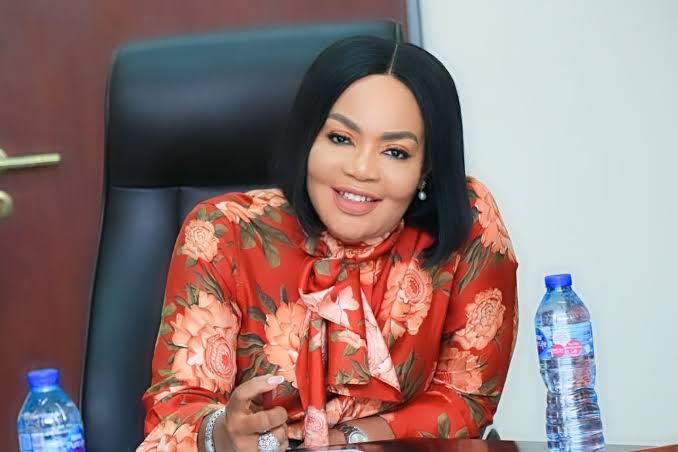
The Minister of Labour and Employment in Nigeria Nkeiruka Onyejeocha, has appealed to Organised Labour to end its ongoing industrial action, which has severely disrupted economic activities across Nigeria.
In an interview on Channels Television’s Politics Today program, Onyejeocha emphasized that the Federal Government alone cannot determine a new minimum wage without input from state governments and the Organised Private Sector.
“The Federal Government takes into cognisance that it’s the tripartite committee that would also ensure that if Mr A agrees to pay, he has to pay,” Onyejeocha stated. She highlighted that some states are still unable to meet the current ₦30,000 minimum wage set in 2019, making the unions’ demand for a ₦494,000 minimum wage unrealistic.
Onyejeocha called the ₦494,000 demand “highly impossible,” warning that such a high wage could lead to significant job losses as many businesses might not be able to afford it. She also pointed out the substantial economic losses incurred in the first 24 hours of the strike, affecting businesses, airports, universities, hospitals, and power supply.
“The hardship inflicted on Nigerians in the last 24 hours since the strike commenced is enormous,” she said, urging labour unions to suspend the strike and return to negotiations to establish a realistic wage. “The new minimum wage must match the productivity and affordability of the private sector,” she added.
Onyejeocha argued that beyond agreeing on a living wage, it is crucial to ensure the sustainability of payments by all members of the tripartite committee. She appealed to the unions to consider the government’s offer of ₦60,000, warning that the ₦494,000 demand could further inflate Nigeria’s already high inflation rate of 33.69%.
The Minister refuted claims that the Federal Government is unserious about the matter, affirming its commitment to establishing a new and realistic minimum wage.
The current minimum wage of ₦30,000, established under the Minimum Wage Act of 2019, expired in April 2024. Labour unions, including the Nigeria Labour Congress (NLC) and the Trade Union Congress (TUC), have argued that this wage no longer supports the average Nigerian worker. The unions had set a May 31 deadline for a new minimum wage, leading to the declaration of a nationwide strike on June 3 after negotiations failed.
During recent talks, labour unions rejected the government’s offer of ₦60,000, insisting on their demand for ₦494,000. Last-minute negotiations between labour leaders and the National Assembly leadership on Sunday night also failed to resolve the impasse.
The Minister of Finance and Coordinating Minister of the Economy, Wale Edun, stated that the workers’ demands are unaffordable, adding another layer of complexity to the ongoing negotiations.
The government continues to urge the unions to reconsider their stance and work towards a mutually agreeable solution to the minimum wage issue.








